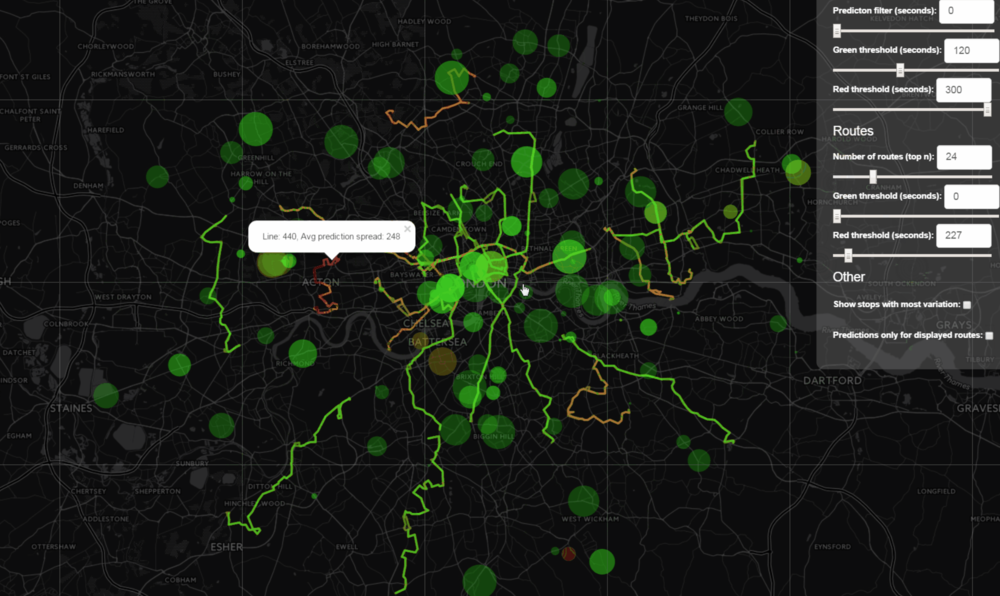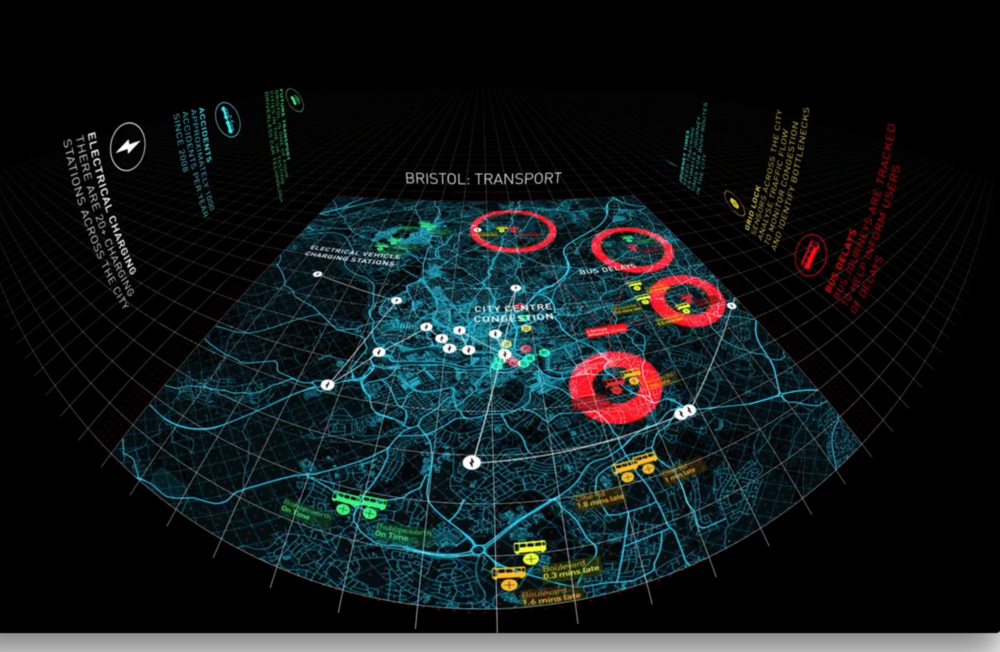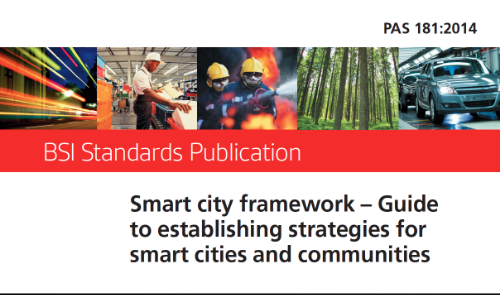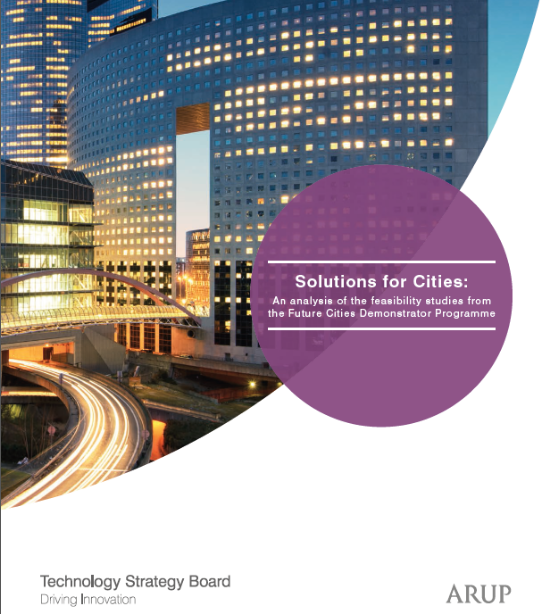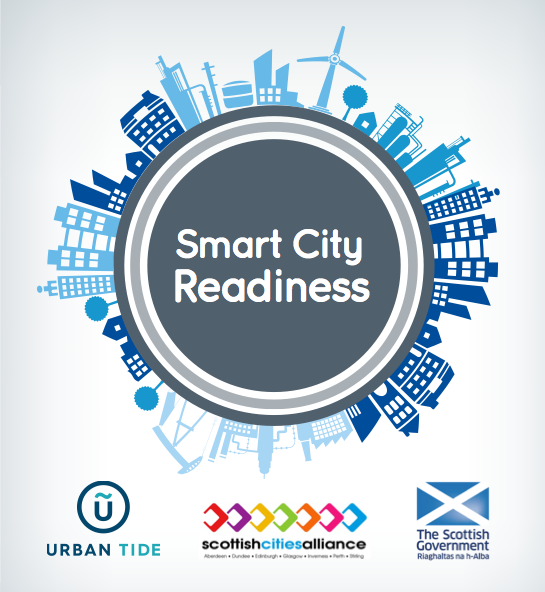Laying Down the Law for Smart Cities.
UrbanTide were fortunate enough to attend the Northern Futures Summit, in Leeds at the start of November.
December 3, 2014
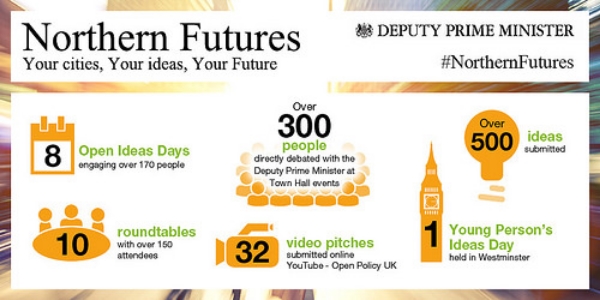
The purpose of this blog however is to investigate, from a 'Smart Cities' angle, a document that was provided to all attendees in their welcome pack by 'Centre for Cities'.
Entitled, 'A Manifesto for a More Prosperous Britain', a 21 page booklet was supplied which lay forth the influential think tanks proposition for a more efficient, sustainable and prosperous United Kingdom, the central tenant being a 'Cities and Prosperity Act' enshrining their recommendations.
There is a clear issue that may require legislation to resolve i.e. the way in which are cities are run does need to be drastically overhauled. As professor Michael Parkinson put it in the summit itself
"Europe's cities drag their economies up, ours drag them down'.
An accompanying leaflet from Centre for Cities stipulating the 2014 Outlook for Cities was also helpful in highlighting the need for immediate and effective change.
For example, in the UK Government grants equate to 83% of the money cities have available to spend, meaning they have have little control over what they get and how they spend it. The OECD average is 45% which means cities take the lead in this area in most other countries around the world. This is the keystone statistic in terms of what is driving this attitude for change and, very crudely from our perspective, results in less of a chance that 'Smart City' pilots will get the go ahead on a city to city basis.
What does the act recommend?
The proposed act makes 5 key recommendations;
- The primary objective of act is to lay down effective leadership and governance structure, similar to that of London. These structures have to be strong enough to effect significant economic change. The formation of combined authorities and mayors etc. is viewed as one way of doing this but would need to be totally democratic. This will give cities the authority and framework to drive growth by working with businesses and public sector.
- The proposed act also makes provisions to ensure better resourced cities. Cities need to stimulate economic growth but currently don’t have the resources. By suggesting more tax raising powers and more control over how money is spent, Centre for Cities believe their proposal will lead to thriving national economy and more efficient expenditure of public money.
- Skills was a consistently mentioned issue at the summit itself and the proposed act seeks to provide for better skilled cities that can create more and better jobs for residents. The available material reveals that current policy is not aligned with labour market. In short giving cities control here would allow for local authorities to work with local business and citizens to create jobs that suit those who live and work in a particular place. The same principle can also be applied to educational institutions and should see some progress made on the London 'brain drain' problem the North experience.
- Housing represents another area that proposed legislation seeks to address. Currently, cities lack tools to address housing shortage. The 'Cities and Prosperity Act' suggests harnessing cities with the tools to respond to local housing needs. Houses need to be delivered where demand is highest to support growth and by decentralising authority here, it will allow a more strategic approach.
- Transport is another area of focus for the proposed act. A constantly contentious issue - all over the UK, city regions lack transport powers to design, coordinate and deliver the transport system to support jobs and connect people to places. Centre for Cities suggest giving cities long term and coordinated funding to invest in transport for city regions and surrounding areas. The aim being to make people more connected as well as opening up jobs and business opportunities by linking homes work and leisure.
What is very striking about these areas of focus is the similarity between decentralisation discussion and smart cities discourse. Even more specifically there are clear similarities between some of the suggestions here around leadership, governance and stakeholder engagement and those that comprise the ideals in the Smart Cities standard PAS 181.
Is it likely to happen?
In short the answer is yes. The specific act proposed may not be passed but increased devolution already has significant cross party support and the first 'deal' has already been done. Chancellor George Osborne confirmed in November 2014 that Greater Manchester is to get its own directly-elected mayor - with the region getting £1bn-worth of powers over transport, housing, planning and policing in return. At the summit itself the Deputy Prime Minister pledged to have similar deals for Leeds and Sheffield before Christmas (although a lack of an elected mayor provision is holding negotiations up somewhat).
So what does this mean for Smart Cities?
Well, all political ideology aside - devolving greater autonomy to cities is exactly what is needed to optimise and accelerate the burgeoning 'Smart Cities' movement in the UK. It will allow local authorities to better tailor solutions to those people who live and work specifically in that city. It defeats the ill fitting blanket proposals that emanate from Whitehall and could overcome the problem of inefficient homogenisation of public services.
This worry of homogenisation also extends to 'Smart Cities' i.e. technology and practicality eliminating all character and identity within an urban area. However when cities have the power, they can make policy which invites greater and more pertinent stakeholder engagement and citizen involvement. This could allow for city specific innovations that come to define the place as much as any other historical influence. Give cities the power and all those who oversee, live and work there can customise to make their city smart whilst reinforcing historical and contemporary identity.
Furthermore, giving more power to cities is perhaps the best way of deriving the benefits from increased competition, both domestically and globally. By giving cities an unprecedented amount of onus they will have no choice but to identify and encourage explorations of collaboration, innovation, citizen centric focuses, partnership and efficiency to justify the decentralisation
The above all being crucial components in successful 'Smart City' projects.
Decentralisation is exactly what is needed to kick start 'Smart Cities' in the UK and finally catch up with the progress being made in this area around the globe. Whilst 'Smart Cities' is clearly not the primary objective of such a political shake up, the benefits for this blossoming movement are there for all to see. Any move that necessitates increased innovation, collaboration, leadership and engagement will be hugely welcomed by the industry. It is not over the top to declare that 'Smart Cities' could act as a conduit for more prosperous cities in the UK, especially if decisions are being taken and solutions being created at the most appropriate level - locally.
More
Unlocking Ireland's Data Potential: Navigating the Open Data Directive with UrbanTide
News

UrbanTide's Commitment to Security: Officially ISO 27001 Certified!
News

uZero was awarded the edie Net Zero Innovation of the Year: Software, Systems & Services Award
News

Tackling the growing fuel poverty crisis and supporting the Just Transition to net zero
News

Low Carbon Homes’ Home Upgrade Show: Innovations in Retrofit
News
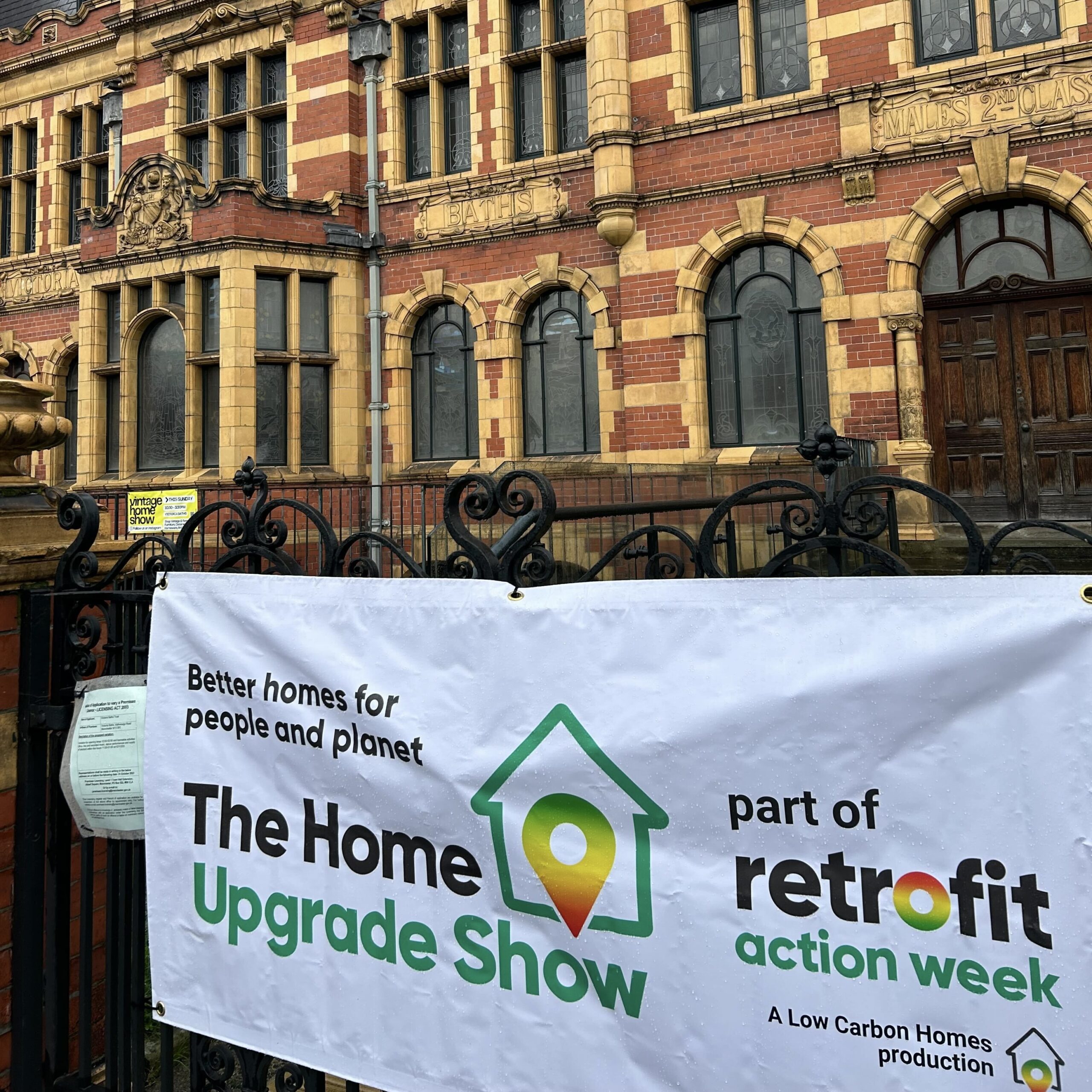
Data Integration and Collaboration are critical for the future of Transportation: Insights from JCT Symposium
News

uMove to support Bedfordshire Council to achieve ambitious sustainability plans
News

Active travel, the current challenges and solutions
News

Using the power of data to build cities of tomorrow
News

uMove supports the Smart Manuals for Streets programme from DfT
News

Scotland's Cycling Framework Makes Infrastructure Greatest Priority
News

Reducing emissions and improving health with active travel
Cycling Scotland

Targeting energy-efficiency campaigns to households most in need
Greater South East Net Zero Hub

Protecting an aging population from fuel poverty
Dartford Borough Council and Dover District Council

Identifying households eligible for energy grant support
The Wise Group

Facilitating active travel behavioural change with data
SEStran

Helping identify customers in or at risk of fuel poverty.
UK Power Networks

Open data promotes transparency, builds trust and empower citizens
Ireland Open Data Training

Identifying and unlocking new revenue from business rates with AI
North Lanarkshire

Tackling the growing
fuel poverty crisis with data and AI
UKRI

Understanding how we live and use our homes with real-time energy data
Smartline

Managing the impact of noise pollution on our cities
Noiseability

Accelerating the transformation of the UK’s energy systems
Energy Systems Catapult

Creating an integrated, affordable low-carbon energy system of the future
ReFLEX Orkney

Investing in sustainable transport infrastructure to become carbon neutral
Somerset County Council

Identifying ageing households at risk of cold and damp home
Sunderland City Council

Innovate UK funding to help our Planet Centred approach to retrofitting Europe’s leakiest homes
News

Open data is now a legal requirement in Ireland and the EU
News

New ‘uZero’ Artificial Intelligence software could help millions with their fuel bills
News
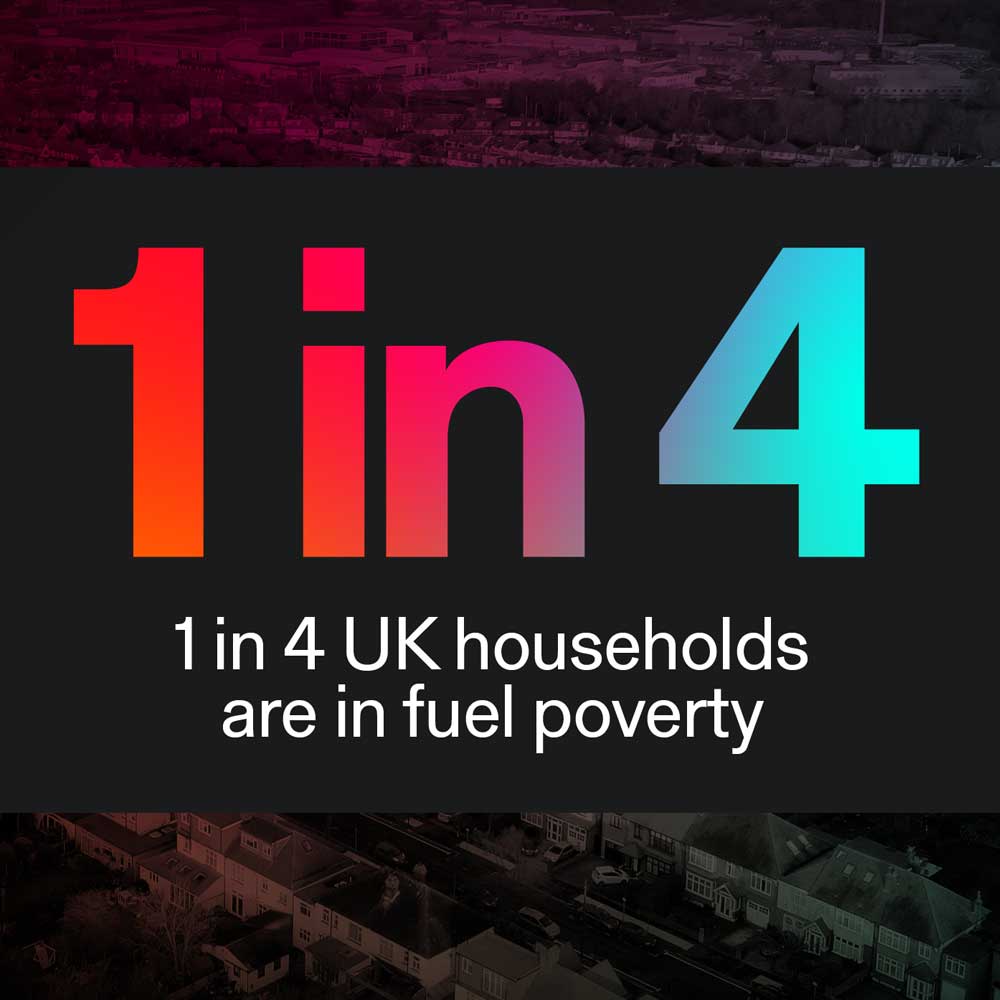
UrbanTide helps secure £48 million funding for Scottish Cities Alliance
News

UrbanTide leads £24 million program to make Glasgow a Future City
News

Building smart communities for OPEN Glasgow Engagement Programme
News

UrbanTide launches IoT data insights platform, uSmart
News

uZero announced as UKRI MEDA competition winner
News

Social Connect is a unique UK Power Networks (UKPN) innovation project
News

UrbanTide announces partnership with Energy Systems Catapult
News

UrbanTide marks four years of Open Data training in Ireland
News

Noisability: UrbanTide wins major bid as part of SynchroniCity program
News

UrbanTide joins prestigious Artificial Intelligence accelerator
News

UrbanTide recognised at ScotlandIS Digital Technology Awards
News

ODI publishes case studies that show how open data can be used in service redesign
News

UrbanTide teams up with North Lanarkshire Council to make better services with data
News

UrbanTide, Snook and North Lanarkshire Council announced as finalists for the 2018 Digital Technology Awards
News

Innovative smart communities IoT project powered by USMART
News
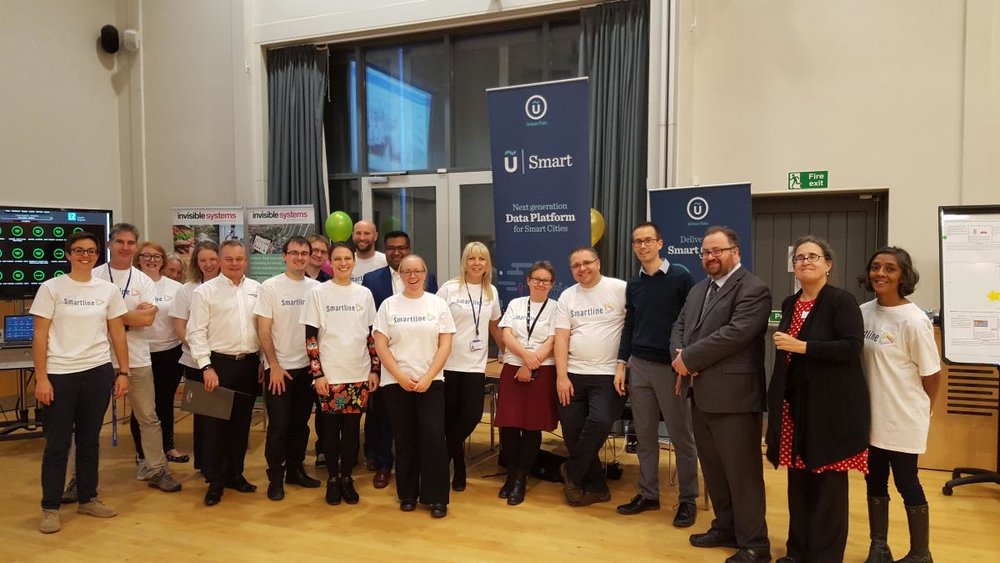
The Power of Data Science in the Health and Care Sector
News

UrbanTide to help transform Ireland by unlocking the power of open data
News

Stay ahead of the curve by learning more about these new smart cities standards
News

#DataFest17 - 12 key lessons we learned about smart cities, communities and the future of data
News
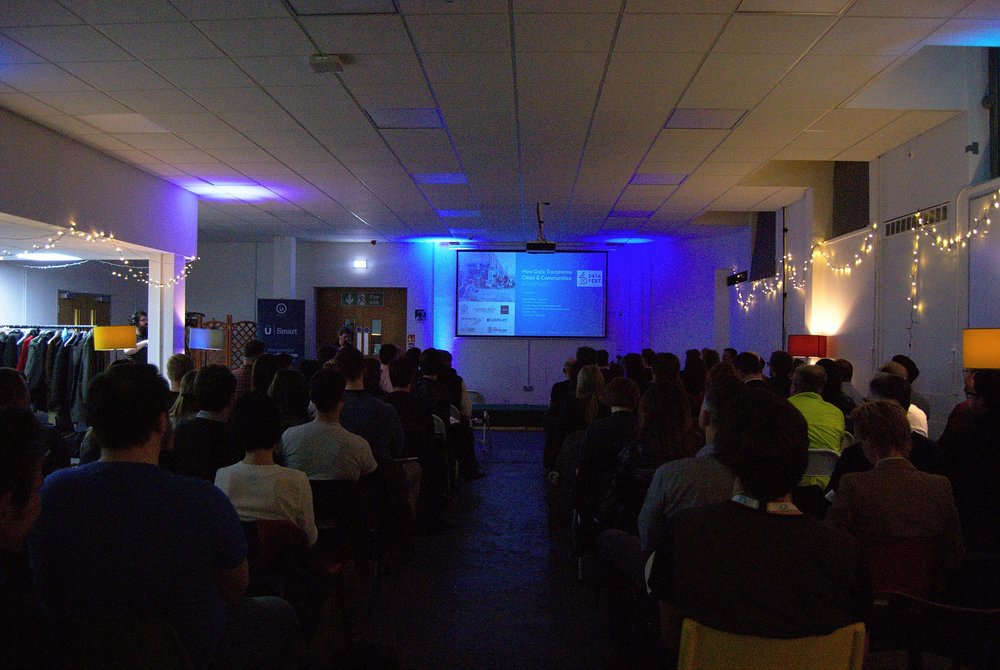
Emerging ideas for a renewed (Y)Our Glasgow City Centre
News

Future Health Hack - building the future of healthcare one line of code at a time
News
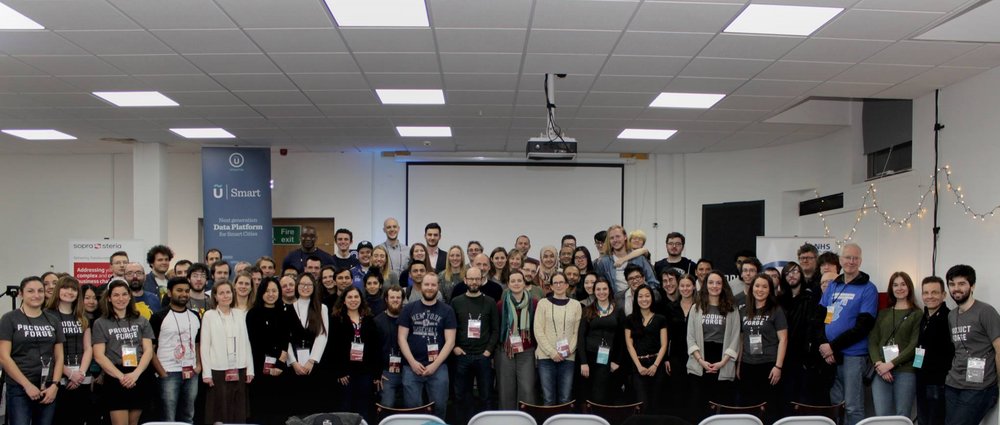
Meet our API Data Explorer – aka your new best friend if you are working with big data
News

Car parks ‘extinct’ in smart cities of the future?
News

3 awesome USMART features - with more coming soon!
News

Data scientists and USMART: a match made in heaven
News

We are now Regional Supporters of Open Data Impact Map
News

Next generation open data platform looking for beta testers!
News

Glasgow city centre regeneration - how smart can Glasgow be?
News

Open data - is the open private sector the next frontier?
News

Open data everywhere! Review of open data maturity in Europe, UK and Scotland
News

Feedback from our year delivering open data training for Scottish Government
News

Announcing our new open data training programme
News

Glasgow City Centre District Regeneration Frameworks
News

Metadata and metadata standards- reflections from our Chief Operational Officer
News

All about our Smart Cities Maturity Self-Assessment Tool
News

Open data training for Scotland's public sector
News

Engage - invest – Exploit (EiE) or Enjoyable - interactive - Experience (EiE)
News

UrbanTide and India: 5 Lesson's Learned from Simon's Trip to the Subcontinent
News

Cisco and the Smart Cities Council: 4 Messages from America...
News

Edinburgh continues to iterate, and then iterate again
News

Start your journey
Take a look at our product page to find out which UrbanTide AI tool has been designed for your needs.
Find out how we can support your data and AI projects and see our growing AI portfolio in action.













